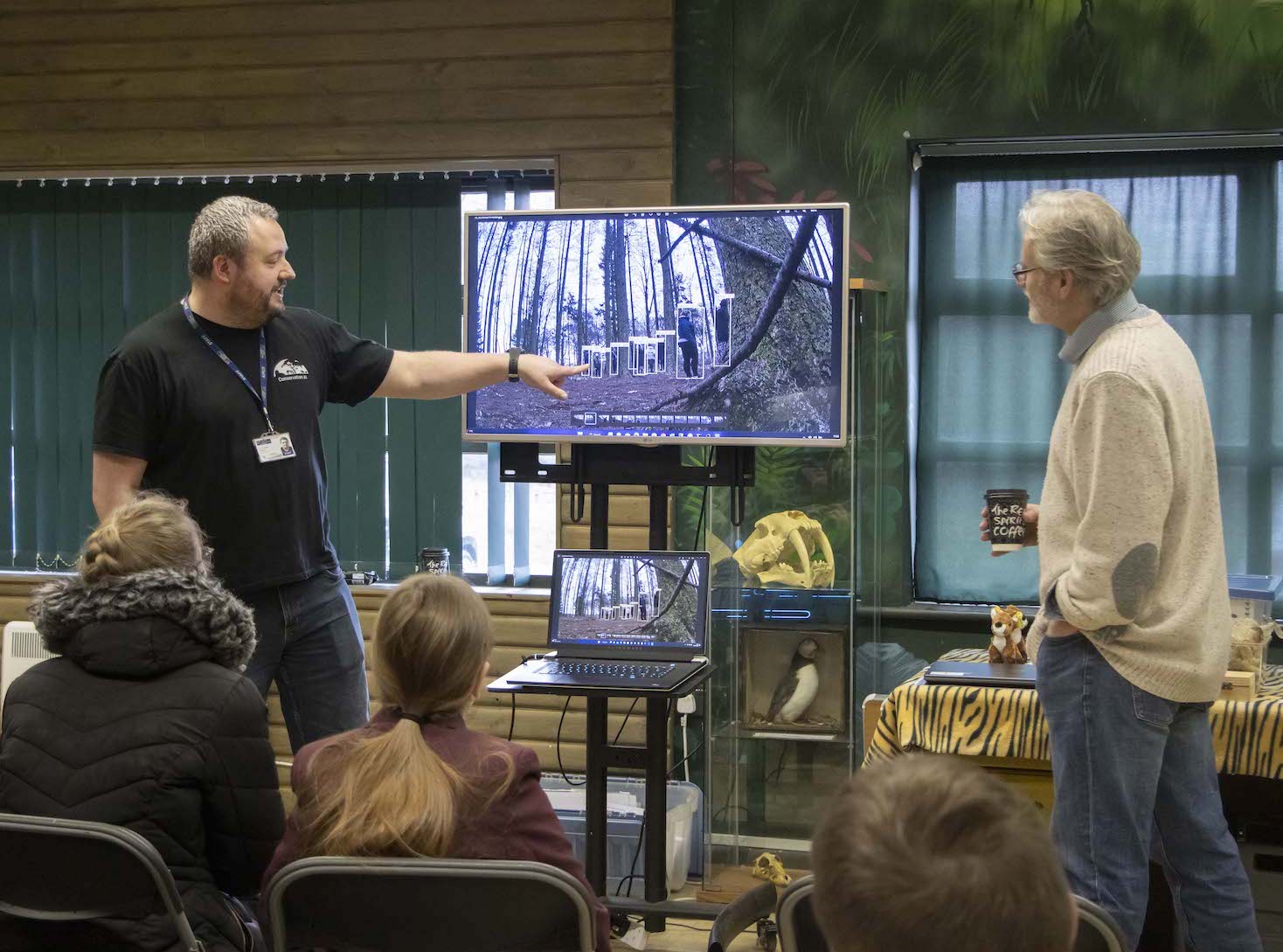Knowsley Safari teaches pupils about AI conservation

Students at Lord Derby Academy in Huyton, have been learning about how pioneering artificial intelligence (AI) can protect wildlife around the world during a field trip to Merseyside’s Knowsley Safari, as part of its innovative Eco-Coders programme.
Developed in partnership with Conservation AI – an interdisciplinary project, and the National Schools’ Observatory (NSO) at Liverpool John Moores University, Eco-Coders is backed by the UKRI Science and Technology Facilities Council.
The programme has been specially created to give local young people a taster of the technical discipline of AI, to encourage them to consider it as a future career option and to highlight its importance in wildlife conservation.
This six-session Eco-Coders programme is delivered on site at Knowsley Safari and in the classroom, by the National Schools’ Observatory, Knowsley Safari’s Learning and Discovery team and the Conservation AI team, made up of experts in computer science, astrophysics, and conservation biology at Liverpool John Moores University.
The 23 students from Lord Derby Academy were the first to take part in the field trip – the second module of the programme – where they demonstrated their understanding of AI for wildlife monitoring via a ‘dodge the AI’ game and took photographs of animals in their habitats.
It followed an introductory classroom-based session where students discussed conservation, its challenges and misconceptions, and learned about emerging technologies that will help to protect wildlife, as well as working in teams to produce an animal health plan.
The local students will go on to apply species counting methods, from the field trip, to identify and count numbers and density of species in video footage and calculate video data analysed, as well as coding algorithms to analyse and classify images of fruit.
Pupils will also gain valuable experience of analysing AI video data – using a machine learning technique developed by the Conservation AI team – that uses brain-like neural networks to analyse and identify images. They’ll compare this to manual counting to determine its benefits – highlighting how AI is one of the most important emerging technologies in global conservation.
In recent years, wildlife conservation has been transformed by the application of AI. It can help researchers, scientists, and rangers to determine the location of animals, dates and times of sighting, migration patterns, and even animal social groups.
AI is being used by conservationists to monitor and protect animals in their natural habitat, track water loss and to safeguard against natural disasters like wildfires and floods, and illegal activity such as poaching.
Knowsley Safari works with the Conservation AI team to monitor its diverse range of animals and uses AI technology to determine ways to further enhance its animal welfare.
This technology was originally developed by Liverpool John Moores University as a powerful discovery tool for astronomy.
Knowsley Safari’s research and conservation officer, Naomi Davies, is a member of the Conservation AI team.
She said: “In the wild, AI is helping to protect many species such as humpback whales, koalas and snow leopards, and we’re delighted to be using the same technology here at Knowsley Safari, to monitor species of wildlife, whilst providing future generations with the chance to get to grips with such innovative technology.”
Nikki Mallott, head of learning and discovery at Knowsley Safari said: “Our visitor attraction, education and conservation teams have all come together to deliver this project…we’d love to think that it’ll inspire some of them explore this very exciting field of work in the future – whether that’s in wildlife, or in the many other industries that are being reformed by AI.”
Steven Longmore, conservation AI researcher and professor in John Moore Univrsity’s Astrophysics Research Institute, said: “We’re absolutely delighted to be working with Knowsley Safari and the Science and Technology Facilities Council to undertake this very valuable work – for the benefit of both local young people and wildlife.”
Merseyside’s Halewood Academy is taking part in the programme, in addition to Lord Derby Academy – the nearby school named after Knowsley Safari’s owner, the 19th Earl of Derby.







